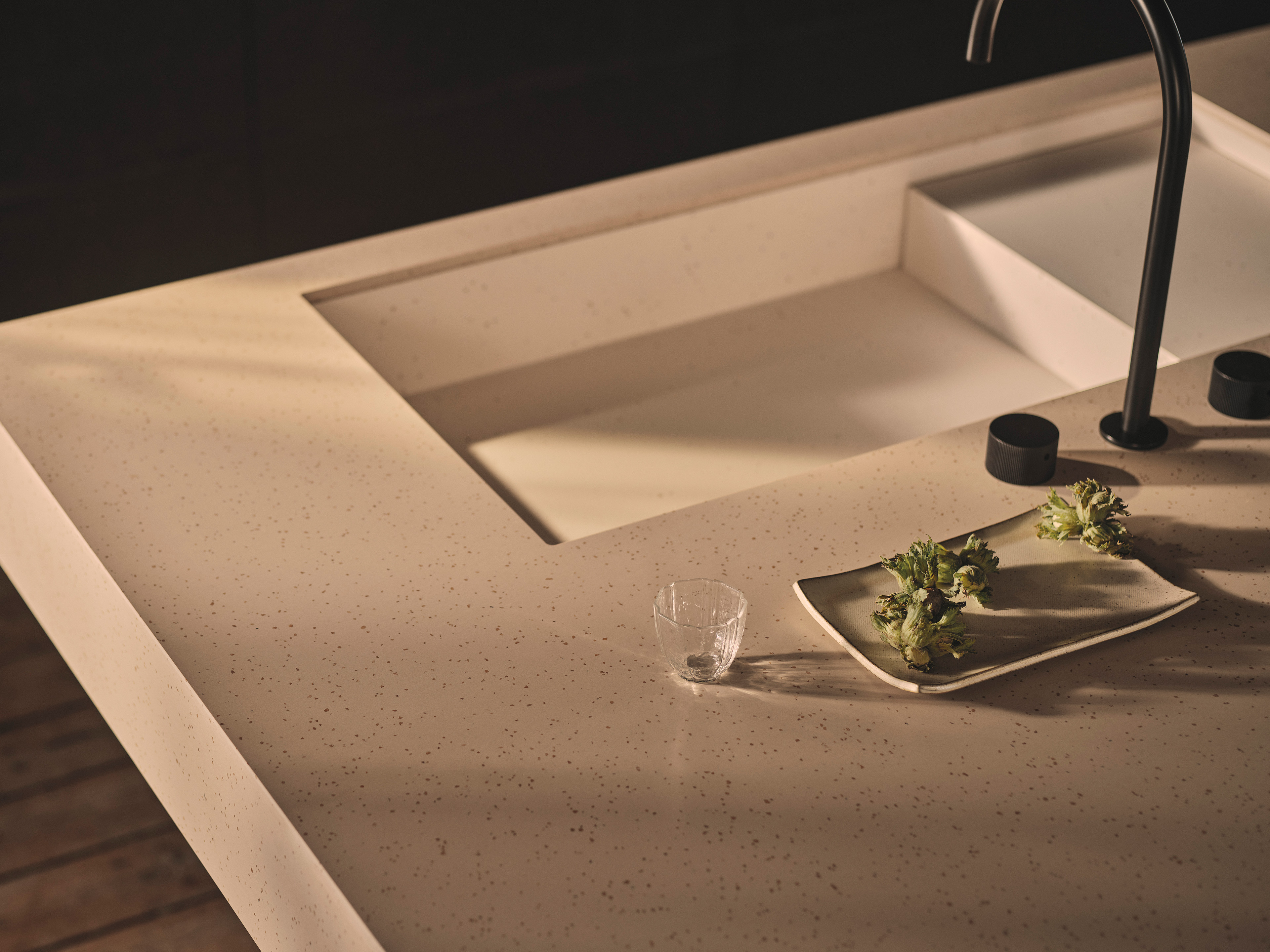Profile: Low Carbon Industrial
Ten years ago, the world of terrazzo was almost exclusively a stone affair. Depending on who you ask, the material dates back as far as the ancient Egyptians. But the speckled surface we use today tells a circular economy story born out of affordability, having first been created by canny Venetian artisans with a plethora of marble waste at their disposal in the 15th Century. However, thanks to an inquisitive approach and research-led endeavour, we now have timber terrazzo made from wood waste, thanks to Foresso.
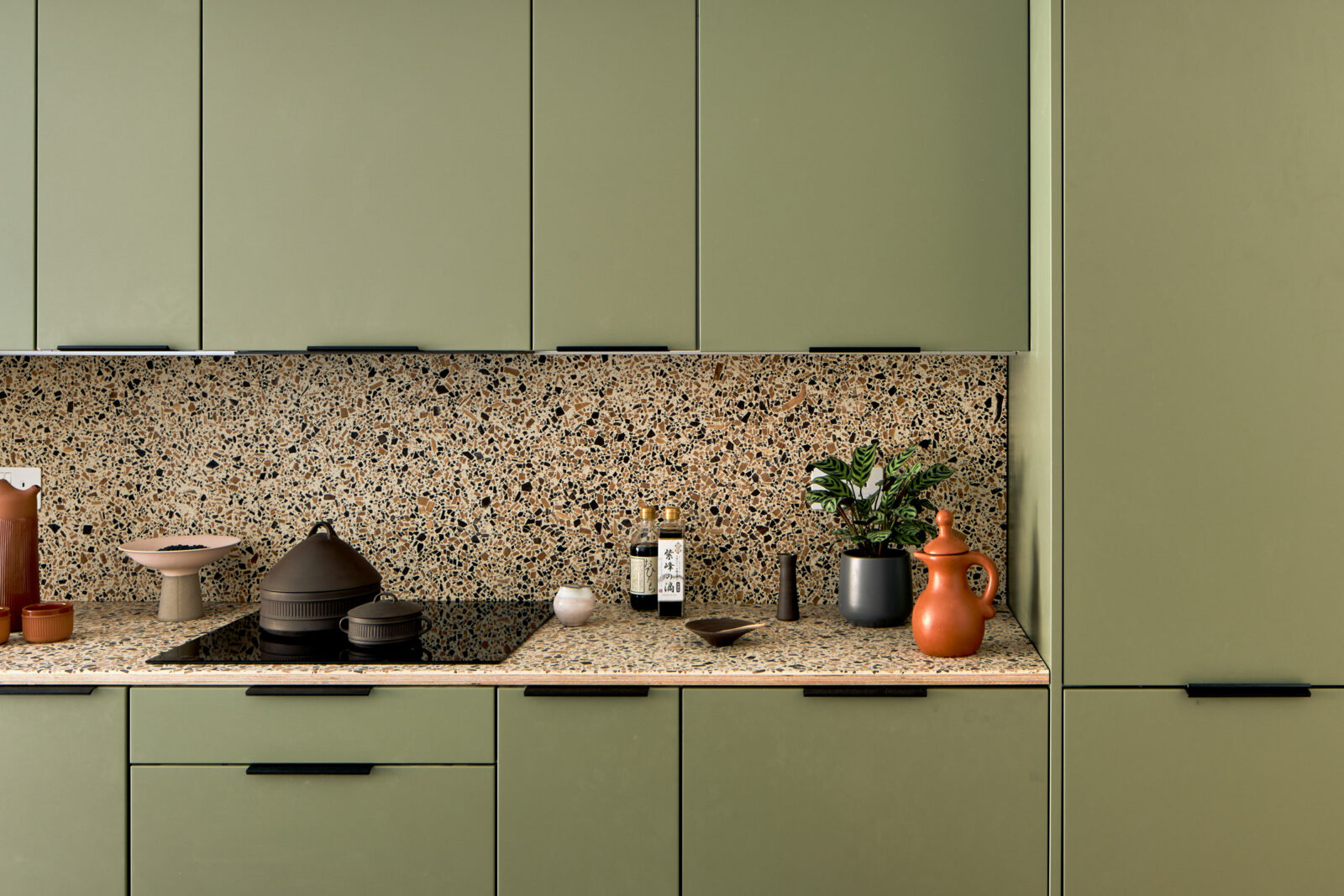
And now the evolution continues. Building on Foressso’s success, Low Carbon Industrial (LCI) is an innovative materials company that’s on a mission to reduce the carbon footprint of architectural materials without compromising performance, aesthetics, or practicality. The aim is clear: to create thoughtful low-carbon alternatives that support both design excellence and environmental responsibility.
At the core of their approach is the idea of repurposing existing infrastructure as they look at the realities of day-to-day manufacturing, and how to collaborate and create circular economies where they didn’t exist already. Keen to demonstrate commercial viability to the wider industry, LCI uses material design to improve, decarbonise, and revolutionise the built environment. Meaning it starts with the idea of ‘piggybacking’ on large-scale manufacturing techniques rather than trying to reinvent them.
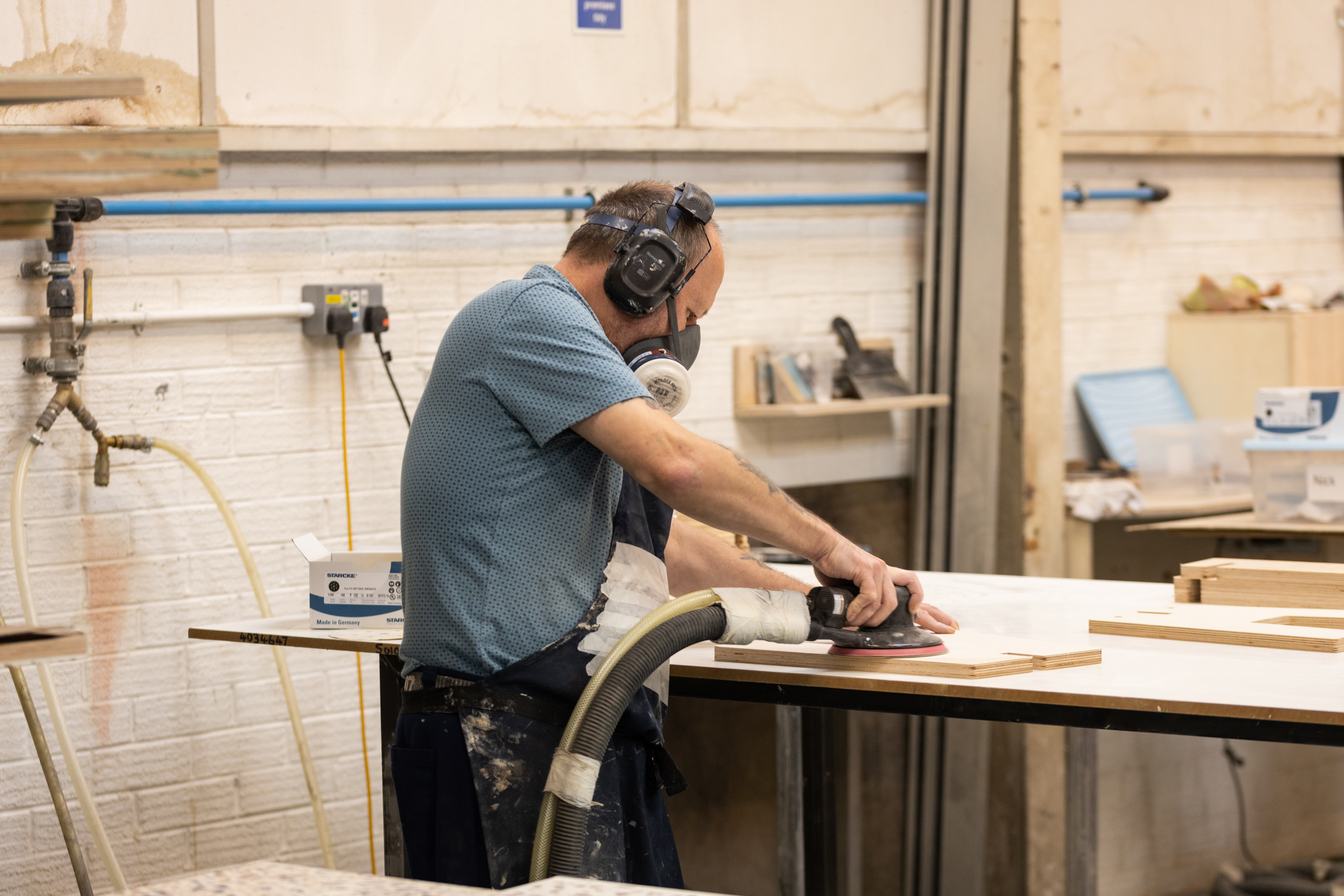
Drawing on the experience of launching Foresso, LCI has learnt just how much the design community values tactility, storytelling, and sustainability when executed well. The A&D community is demanding materials that balance performance, sustainability, and storytelling and the team underline the idea that if innovation isn’t visually appealing, people will have a reason not to adopt change.
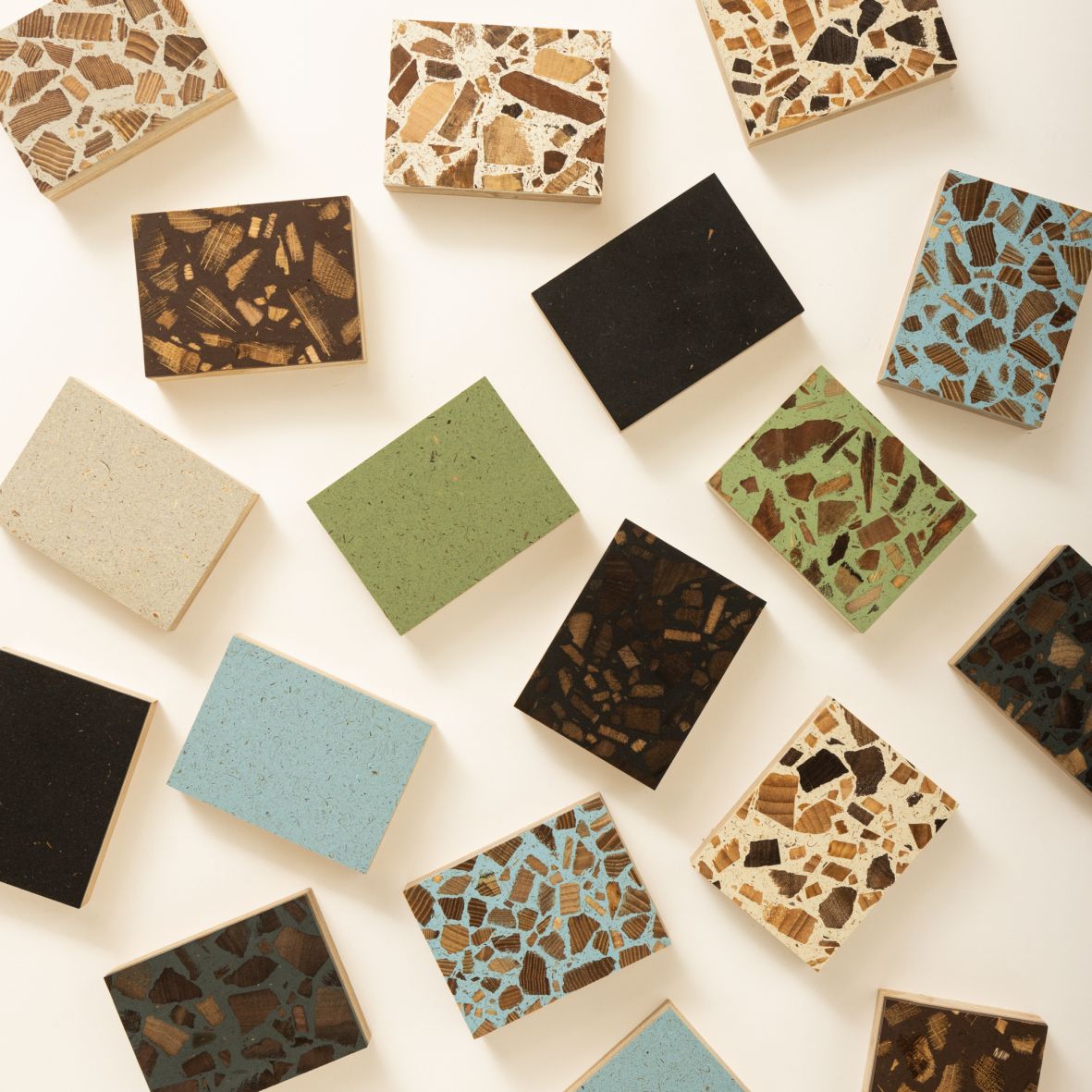
Conor Taylor, Foresso and LCI Co-founder, comments, “We live in uncertain, fragile times, and the rise of consumer interest in sustainability can be seen as a response to our ongoing need to consume. It’s a balance between consumerism and personal ethics that has led to a more thoughtful approach to how we shop, where we shop and what we buy.
At its core, sustainability is about doing less, and as a result brands are having to learn how to do more, but more responsibly. Changing tastes and expectations are rippling through every aspect of design as consumers look for products that not only bring pleasure, but they can also connect with in a meaningful way.”
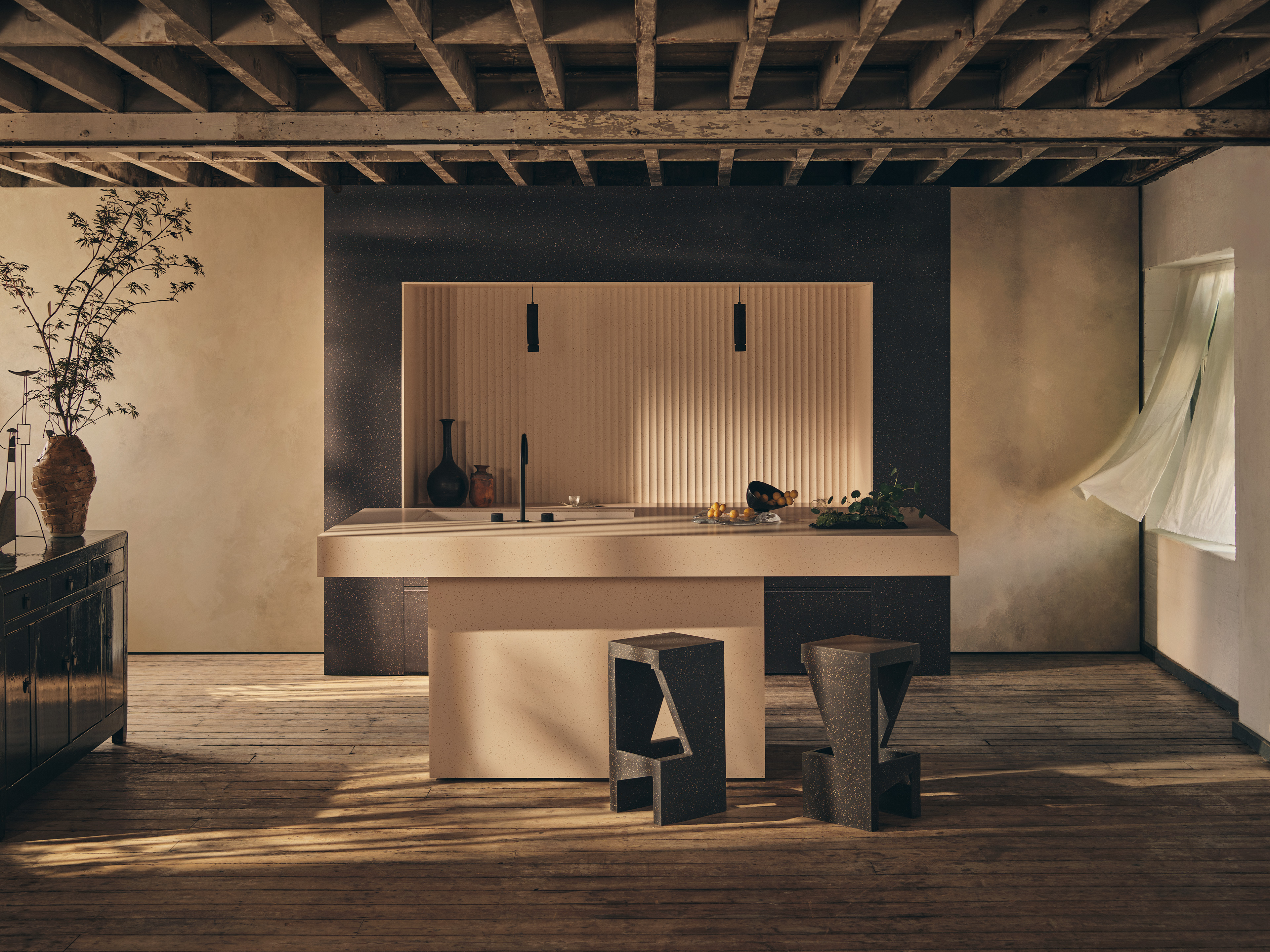
Elenite is LCI’s debut product, designed for architects, designers, and fabricators, it brings richness and character to solid surfaces, with versatile applications across kitchens, bathrooms, and furniture. Made from natural waste materials such as walnut shell, walnut dust, and bamboo fibre, it combines tactile warmth with natural pigments. The surface comes in four distinctive colours, allowing designers to integrate sustainability seamlessly into diverse palettes. Conor underlines the importance of the aesthetic choices behind the range:
“We are seeing a clear shift away from the mass manufacture of the 1990s and 2000s, when endless options of perfectly machined brass and polished stone dominated the industry - and our homes. Today’s consumers are seeking comfort and reassurance from their homes, which is why sustainable surface materials have become a natural, go-to choice. Their soft textures, warm colours, and inherent connection to nature helps to create spaces that feel grounded and restorative.”
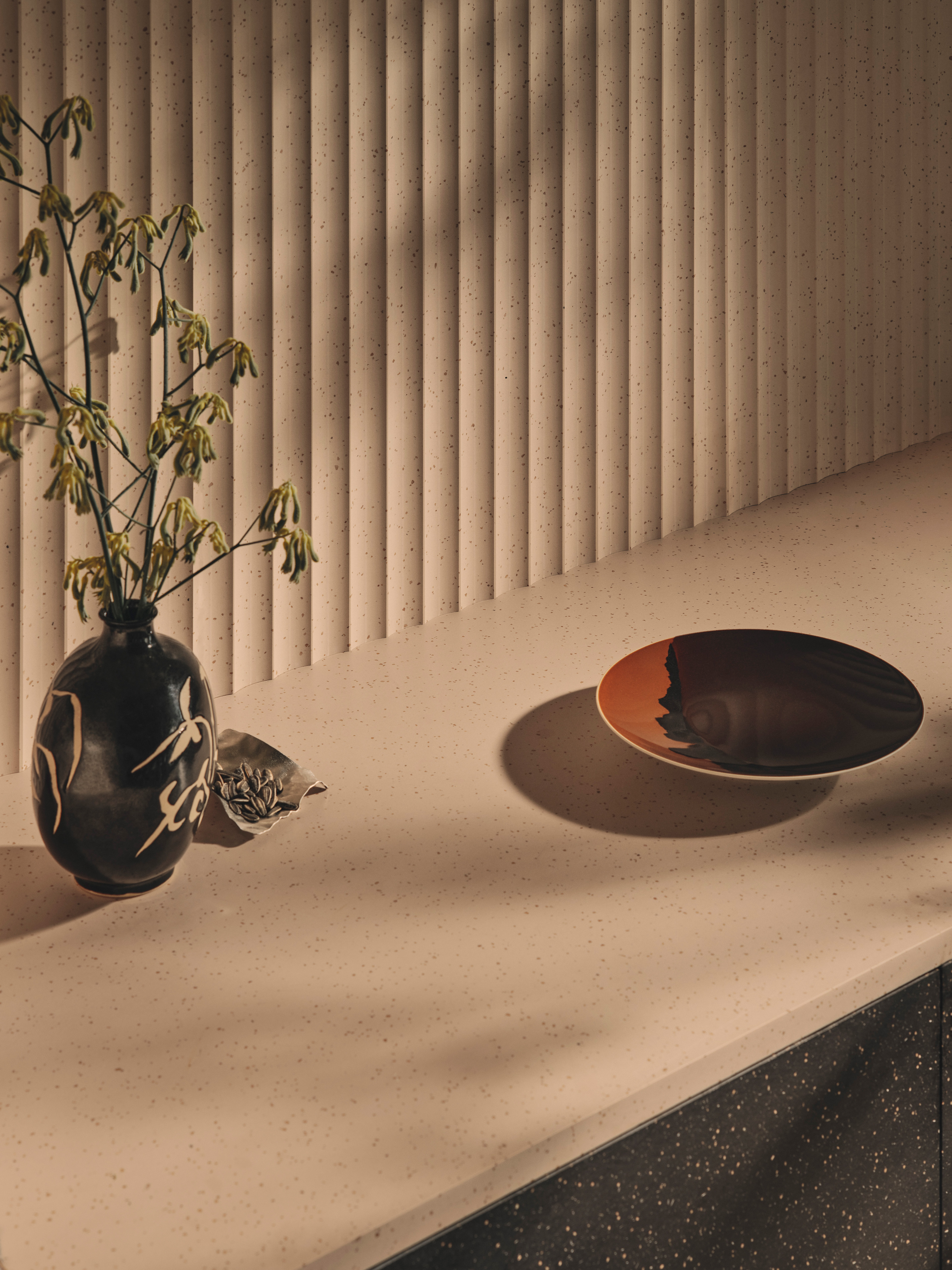
Engineered for high-specification environments, Elenite also delivers performance comparable with leading competitors while reducing embedded carbon by 29%, with future production targeting a 50% reduction. Made in partnership with Taiwan-based specialists Meganite, who share LCI’s commitment to doing things differently, it is set to be chosen by those who do, too. The benefits are clear; Elenite contains no silica, formaldehyde, or water, and it’s circular production process recycles all manufacturing waste, while end-of-life sheets can be returned for complete recycling into future batches. In each Elenite sheet, which measure 3660 x 760 x 12mm, there is 35% recycled resin, which equates to 1,900 600ml water bottles being recycled and reused per sheet.
Together with Meganite, LCI is proving that beauty, performance, and environmental intelligence can come as standard.

